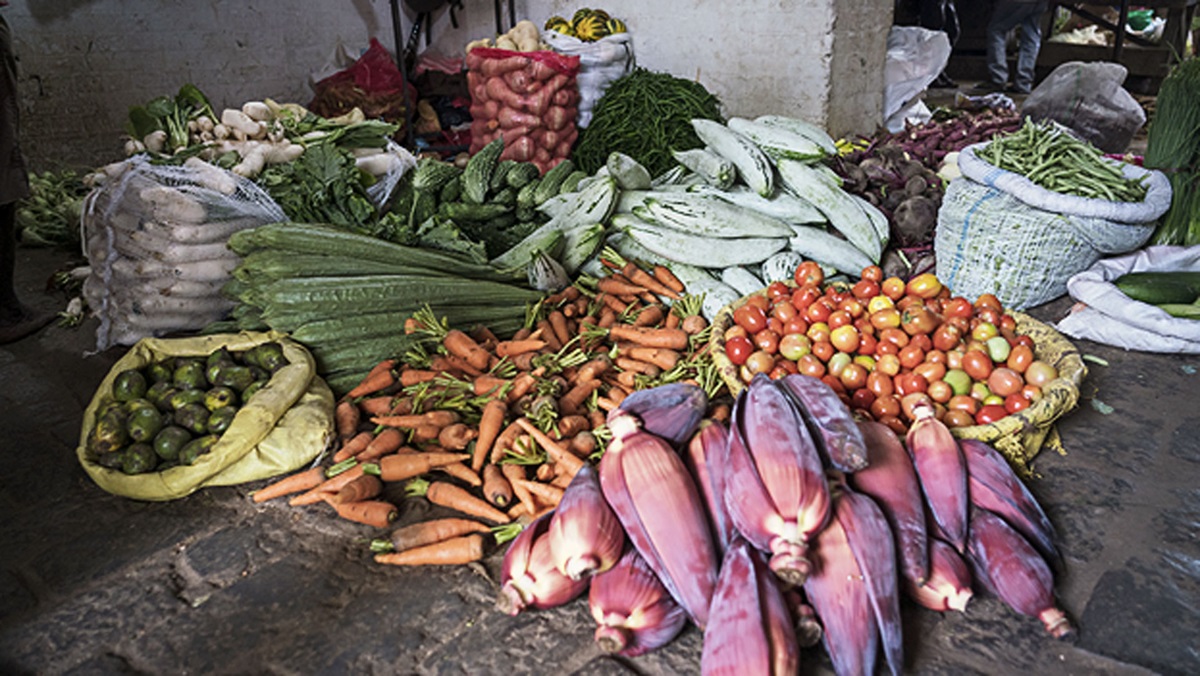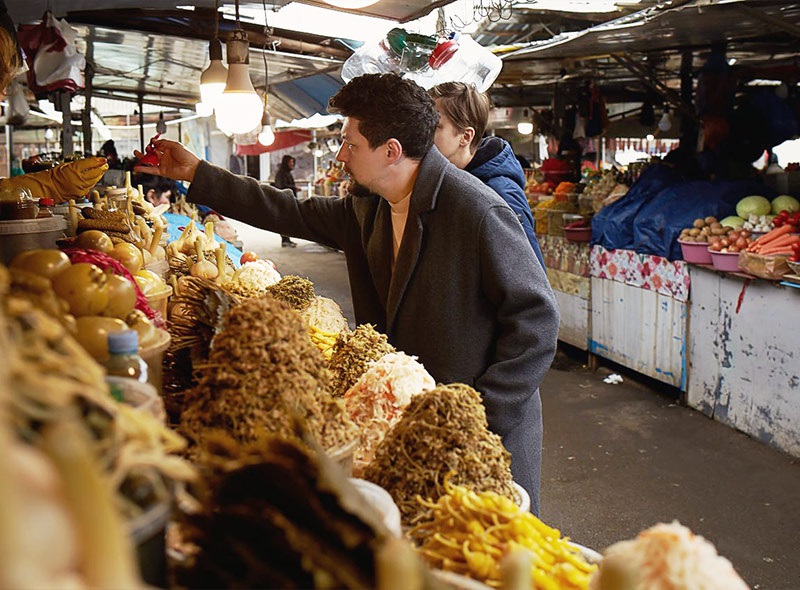No images? Click here
Why rethink mobility in the WHO European Region?
15-05-2023
Mobility is at a crossroads. A world emerging from the COVID-19 pandemic offers no better time for governments and their partners to rethink road transport and mobility. A business-as-usual approach would dictate continuing to build infrastructure and road transport systems that cater most to private motor vehicles, rather than the actual mobility and accessibility needs of people. It has been well-documented that more roads with more lanes equal more cars. Experience from cities worldwide demonstrates that such expansion is unsustainable. It leads to death, injury and disability, and contributes to traffic congestion, lengthy commutes, and related stresses, as well as noncommunicable diseases through poor air quality, noise and reduced opportunities for physical activity, emissions of greenhouse gas that contribute to climate change, soil sealing, and land consumption and fragmentation. A new vision of mobility would demand building or redesigning roads and public spaces for everyone, prioritizing the accessibility and mobility needs of those most vulnerable to the effects of motorized transport: children, women, people with disabilities, and elderly people. Read full story
World No Tobacco Day 2023: We need food, not tobacco
31 May 2023
On 31 May 2023, WHO and public health champions around the world will come together to celebrate World No Tobacco Day (WNTD). This year’s theme is “We need food, not tobacco”. The 2023 global campaign aims to raise awareness about alternative crop production and marketing opportunities for tobacco farmers and encourage them to grow sustainable, nutritious crops. It will also aim to expose the tobacco industry’s efforts to interfere with attempts to substitute tobacco growing with sustainable crops, thereby contributing to the global food crisis.
TÜRKIYE AND SYRIA EARTHQUAKES
In Türkiye’s Hatay province, a region devastated by the massive earthquakes that struck 3 months ago, tents and containers are now home to many displaced people, including pregnant women and new mothers. According to United Nations data, an estimated 2.4 million women of reproductive age were impacted by the earthquakes. In Hatay, about 14 000 babies are born in a typical month. To respond to this huge need, Dr Serap Şener from the WHO Country Office in Türkiye has been tasked with supporting the Ministry of Health and the local health system to provide primary health-care services, particularly those related to reproductive and women’s health, to earthquake-affected communities.
Türkiye earthquake: external situation report no.8: 17–30 April 2023
10-05-2023
United Nations Secretary-General commends Türkiye for leading zero-waste campaign
13-04-2023
UKRAINE EMERGENCY
“I haven’t fled because I love my colleagues and care about our patients. When it all started, they could not just stand up from their hospital beds and escape. What would they do all by themselves if all medical staff ran away?” says Khrystyna Lopatenko, a chief nurse at Kharkiv Oblast Hospital. On International Nurses Day, celebrated on 12 May, Khrystyna shares her story about work under air raid sirens and in bomb shelters, and her motivation to stay in Ukraine and continue saving lives during the war.
Countries hosting Ukrainian refugees reaffirm their commitment to meeting their health needs
03-05-2023
WHO-supported emergency medical teams help thousands in Ukraine’s regained regions
13-04-2023
WHO response to the Ukraine crisis: March 2023 bulletin
15-05-2023
One year on from mpox: where are we now? – a conversation with Martin Joseph and Harun Tulunay
15-05-2023
COVID-19
Unable to walk and housebound at the age of 12 – the extreme consequences of long COVID
15-05-2023
Increasing Recognition, Research and Rehabilitation for Post COVID-19 Condition (long COVID)
Publications and technical guidance
Publications, country and technical guidance for the COVID-19 outbreak

10-05-2023
Newly adopted Zagreb Declaration sets out a political roadmap for reversing the rapid rise of childhood obesity. The spouses of 16 European leaders and heads of state came together in the Croatian capital today, under the auspices of First Lady of Croatia Dr Sanja Musić Milanović, to launch the first-ever Network of Spouses of European Leaders on the Prevention of Childhood Obesity in the WHO European Region. They have unanimously adopted the Zagreb Declaration, laying out their political commitment to addressing childhood obesity in their countries and urging other countries to do the same. Childhood obesity data paint an alarming picture. According to the WHO European Regional Obesity Report 2022, roughly 1 in 3 primary school-aged children in the Region is living with obesity or overweight, and this is only set to rise further.
Summary and outcome of the Third Special Session of the WHO Regional Committee for Europe
15-05-2023
Why rethink mobility in the WHO European Region?
15-05-2023
Physical activity in the EU: policies that make people happier
10-05-2023
“There was never one time that anyone ever asked me, ‘Are you okay?’”
08-05-2023
WHO/Europe supports countries to improve quality of data on health spending
25-04-2023

REGIONAL DIRECTOR
Focusing on the state of health in Ukraine with an eye to the future
01-05-2023
WHO and the Ministry of Health of Ukraine underscored their long-running partnership amid the ongoing war in addressing essential health needs and strengthening the country’s health systems for the future during a wide-ranging, day-long dialogue in Copenhagen today, as Health Minister, Viktor Liashko, made his first official visit to the headquarters of WHO/Europe. Accompanied by Ukrainian Deputy Health Minister, Serhii Dubrov, and Ukraine’s Ambassador to Denmark, Mykhailo Vydoinyk, Minister Liashko met with the WHO Regional Director for Europe, Dr Hans Henri P. Kluge, and the WHO/Europe leadership team, as well as the WHO Representative in Ukraine, Dr Jarno Habicht, to discuss the impacts of the war – including on health services and delivery, the health and care workforce, and health infrastructure – along with how Ukraine’s health reforms are charting a blueprint for the years ahead. Read the full article

15-05-2023
During Salt Awareness Week, Georgian health professionals share advice on the best ways to explain health hazards of excessive salt consumption to patients, and why medication for hypertension cannot be seen as an alternative to a healthier diet. Dr Nino Chikovani, a cardiologist working in Tbilisi, explains, “When I advise my patients to eat less salt, the usual answer I get is: ‘Measuring salt intake is too much for me, it’s too complicated! To be on the safe side, I would just take some medication to lower my heart pressure.’ But this approach to problem-solving will not protect your heart. On the contrary – this puts you at greater risk.”
Fighting drug-resistant tuberculosis in Poland with a patient-centred model of care
10-05-2023
WHO strengthens ear and hearing care in Georgia
10-05-2023
Helping health leaders in Poland communicate effectively during health emergencies
09-05-2023
Georgia adopts its first national rehabilitation strategy
26-04-2023
New data reveal inequalities in homeschooling and mental health of Slovenian adolescents
26-04-2023
WHO certifies Azerbaijan and Tajikistan as malaria-free
21-04-2023

EVENTS
European Public Health Week 2023 – Daily kick-off for Monday: mental health for all
22 – 26 May 2023, WHO European Region
World No Tobacco Day 2023: We need food, not tobacco
31 May 2023
WHO/Europe regional meeting on fit-for-purpose hospitals
5 – 7 June 2023, Baku, Azerbaijan
WHO Partners Forum 2023
13–14 June 2023, Istanbul, Türkiye
Seventh Ministerial Conference on Environment and Health
5 – 7 July 2023, Budapest, Hungary









